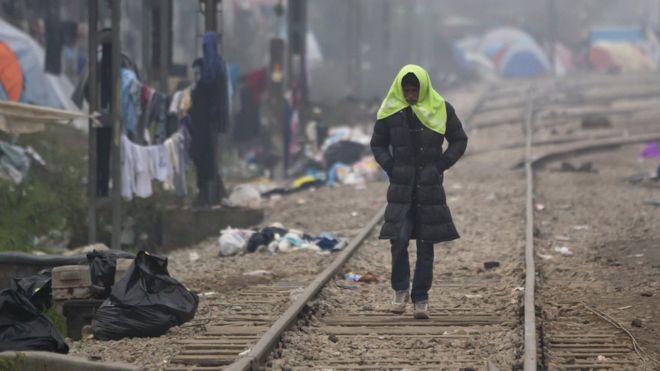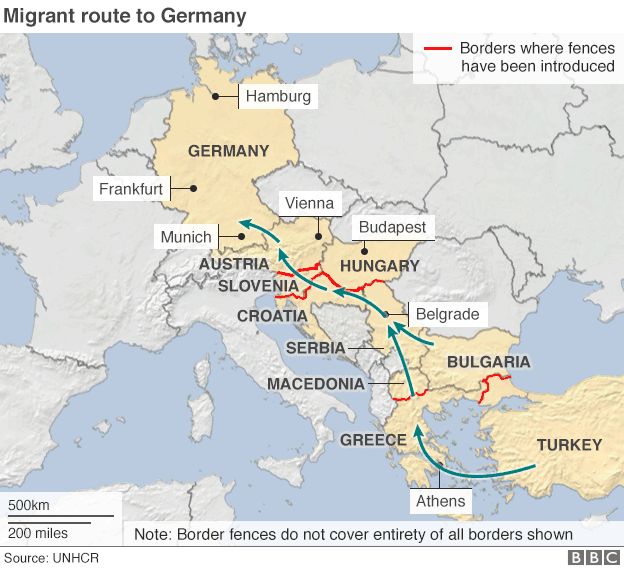- 4 minutes ago
- From the section Europe
 Image copyright AP
Image copyright AP
The EU and Turkey have reached a deal on the migrant crisis, which will see migrants returned to Turkey in exchange for aid and political concessions.
Under the plan, from midnight Sunday migrants arriving in Greece will be sent back to Turkey if their asylum claim is rejected.In return, EU countries will resettle Syrian migrants living in Turkey.
EU leaders have welcomed the agreement but German Chancellor Angela Merkel warned of legal challenges to come.
Some of the initial concessions offered to Turkey have been watered down and some EU members expressed disquiet over Turkey's human rights record.
Despite this Turkish Prime Minister Ahmet Davutoglu said it was a "historic" day.
"We today realised that Turkey and the EU have the same destiny, the same challenges and the same future."
Mr Tusk stressed the agreement was no "silver bullet" and was just one part of the EU's response to a crisis that has sharply divided the bloc's members.
Mrs Merkel said she was satisfied but added "I have no illusions that what we agreed today will be accompanied by further setbacks".
British Prime Minister David Cameron has welcomed the deal, saying it could "significantly" reduce numbers of migrants crossing the eastern Mediterranean to enter Greece by boat.
But Kate Allen from rights group Amnesty International said "it's absolutely shameful to see leaders seeking to abandon their legal obligations".
Key points from the agreement
- Returns: All "irregular migrants" crossing from Turkey into Greece from 20 March will be sent back. Each arrival will be individually assessed by the Greek authorities.
- One-for-one: For each migrant returned to Turkey, a Syrian migrant will be resettled in the EU. Priority will be given to those who have not tried to illegally enter the EU and the number is capped at 72,00.
- Visa restrictions: Turkish nationals should have access to the Schengen passport-free zone by June. This will not apply to non-Schengen countries like Britain.
- Financial aid: The EU is to speed up the allocation of €3 bn ($3.3 bn; £2.3 bn) in aid to Turkey to help migrants.
- Turkey EU membership: Both sides agreed to "re-energise" Turkey's bid to join the European bloc, with talks due by July.
An EU source told the BBC up to 72,000 Syrian migrants living in Turkey would be settled in the EU under the agreement.
They added that the mechanism would be abandoned if the numbers returned to Turkey exceeded that figure.
Tens of thousands are now stuck in Greece as their route north has been blocked.
Greek Interior Minister Panagiotis Kouroublis has compared conditions at the Idomeni camp, on the border with Macedonia, to a Nazi concentration camp.

Features and analysis
- Turkey has European Union over a barrel
- The tricky business of solving Europe's migrant crisis
- EU migration: Crisis in seven charts
- In depth report
- EU-Turkey 'one-in one-out' migrant plan
- Migrant crisis: Have EU promises been kept?
- Why is EU struggling with migrants and asylum?
- How is migrant crisis dividing EU countries?
- Schengen: EU free movement deal explained

No comments:
Post a Comment